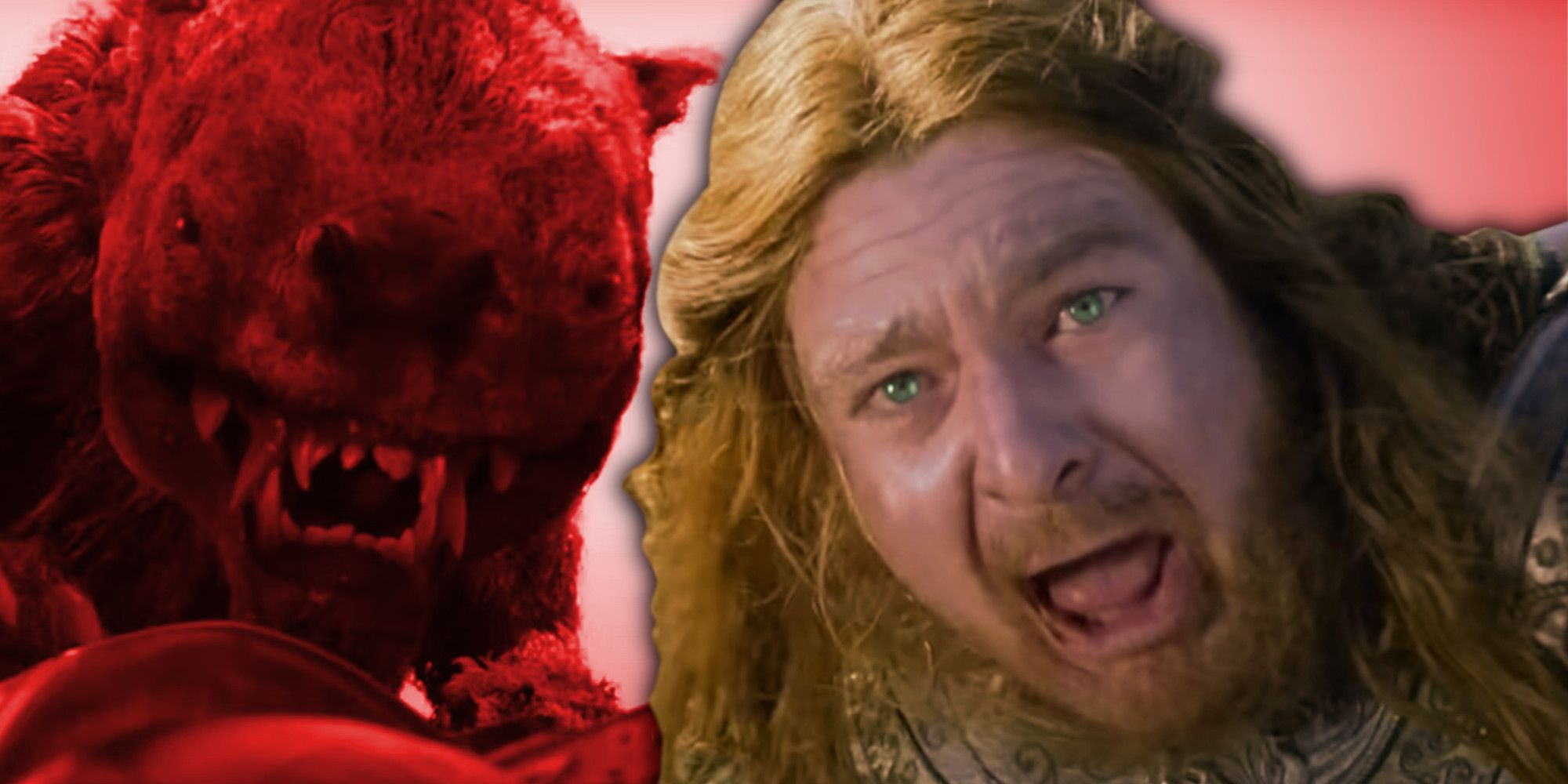
But not all the Rohirrim followed Wormtongue’s lead. Some saw past his evil lies and remained loyal to their king even in his sickness. One such Rohirrim was Háma, as portrayed by John Leigh. Háma was the Captain of the King’s Guard, and he was also the Doorward of Théoden, meaning he protected the entrance to wherever Théoden resided at the time. He did not outwardly rebel like Éomer, but he was opposed to Wormtongue’s actions. Háma eventually helped Gandalf free Théoden from Saruman’s corruption, but his loyalty was not rewarded. Háma’s fate differed between Jackson’s film and J. R. R. Tolkien’s The Lord of the Rings novel, but it was tragic in both.
Háma Disobeyed Wormtongue’s Commands
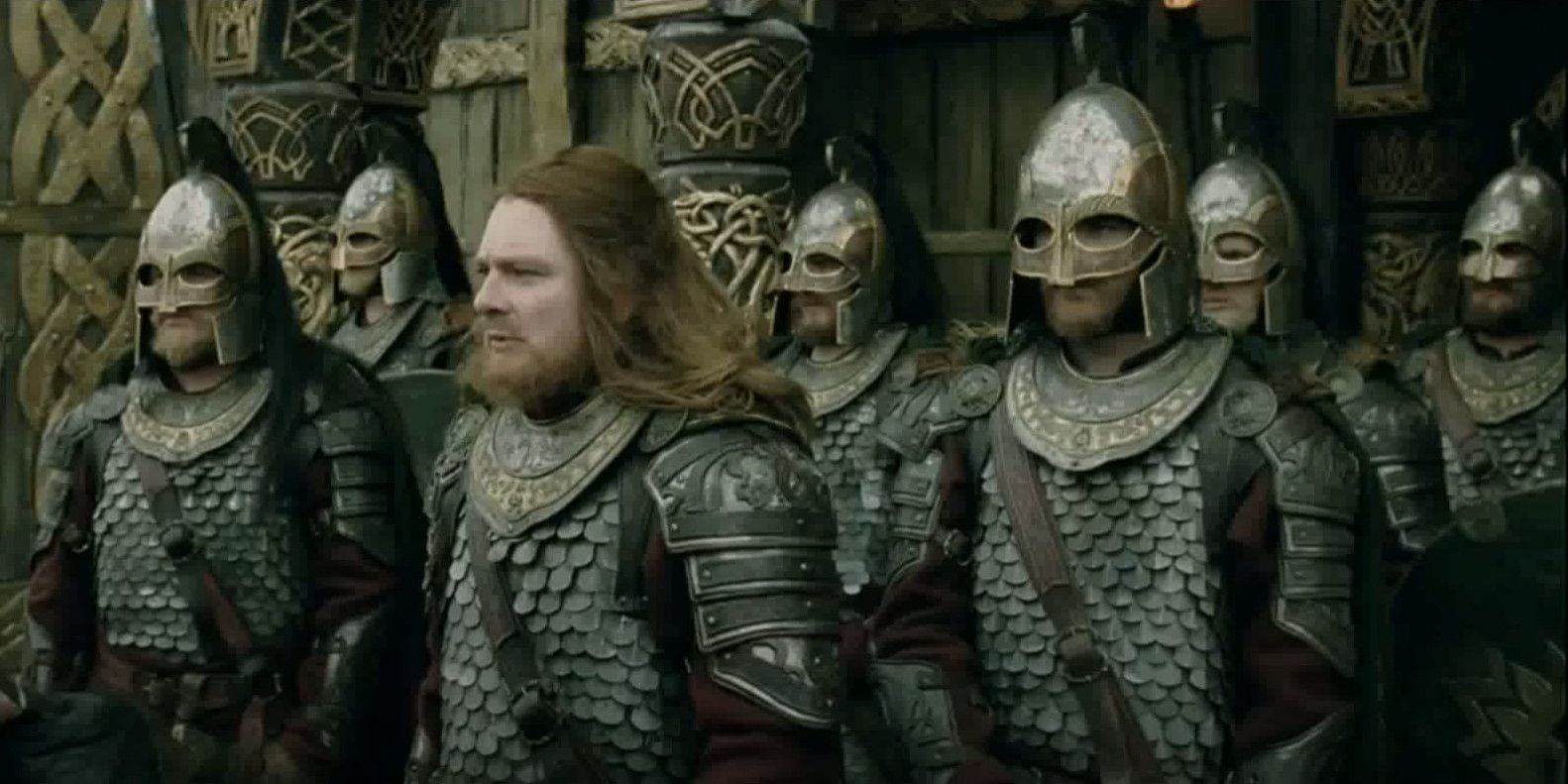
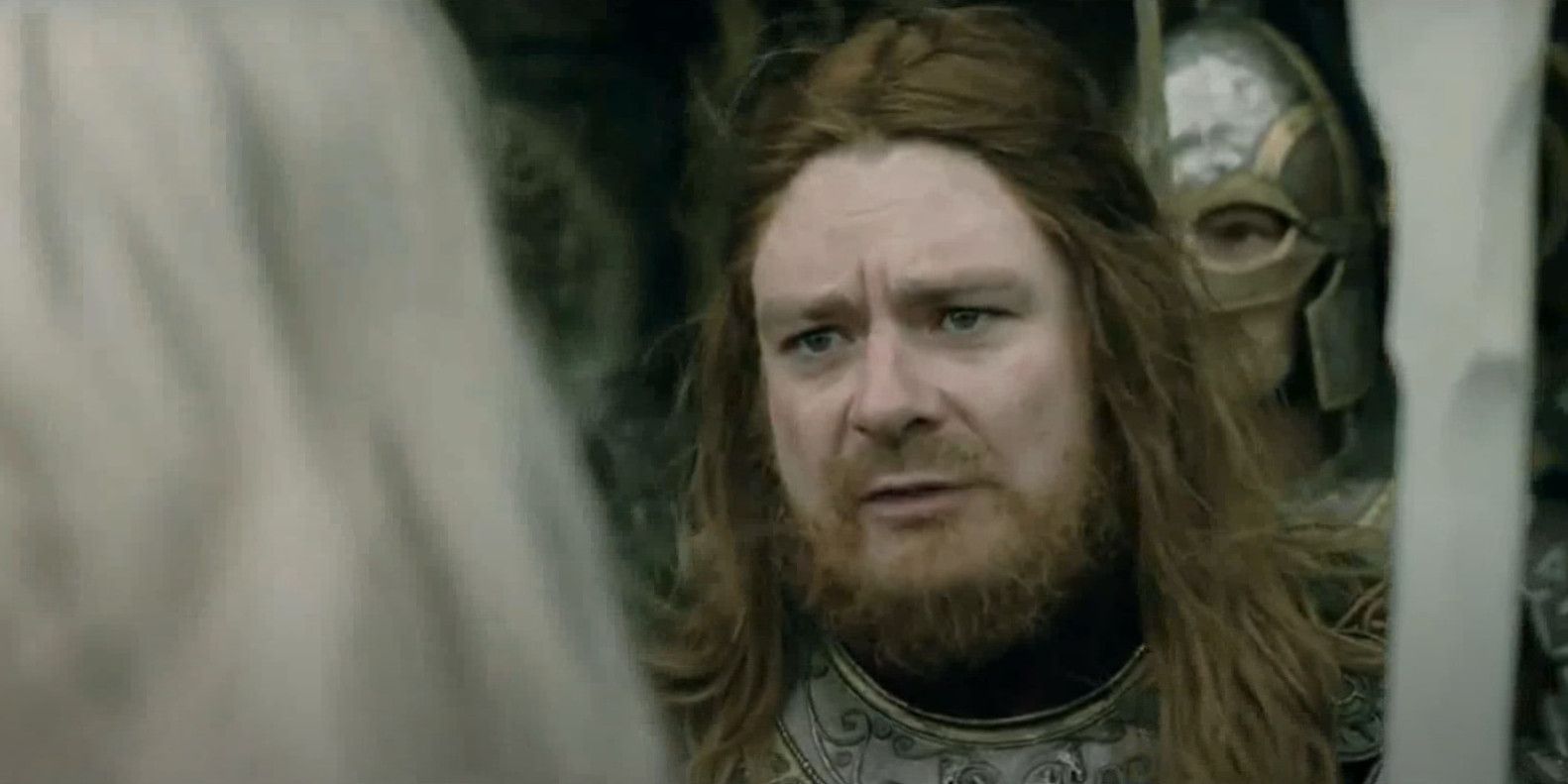
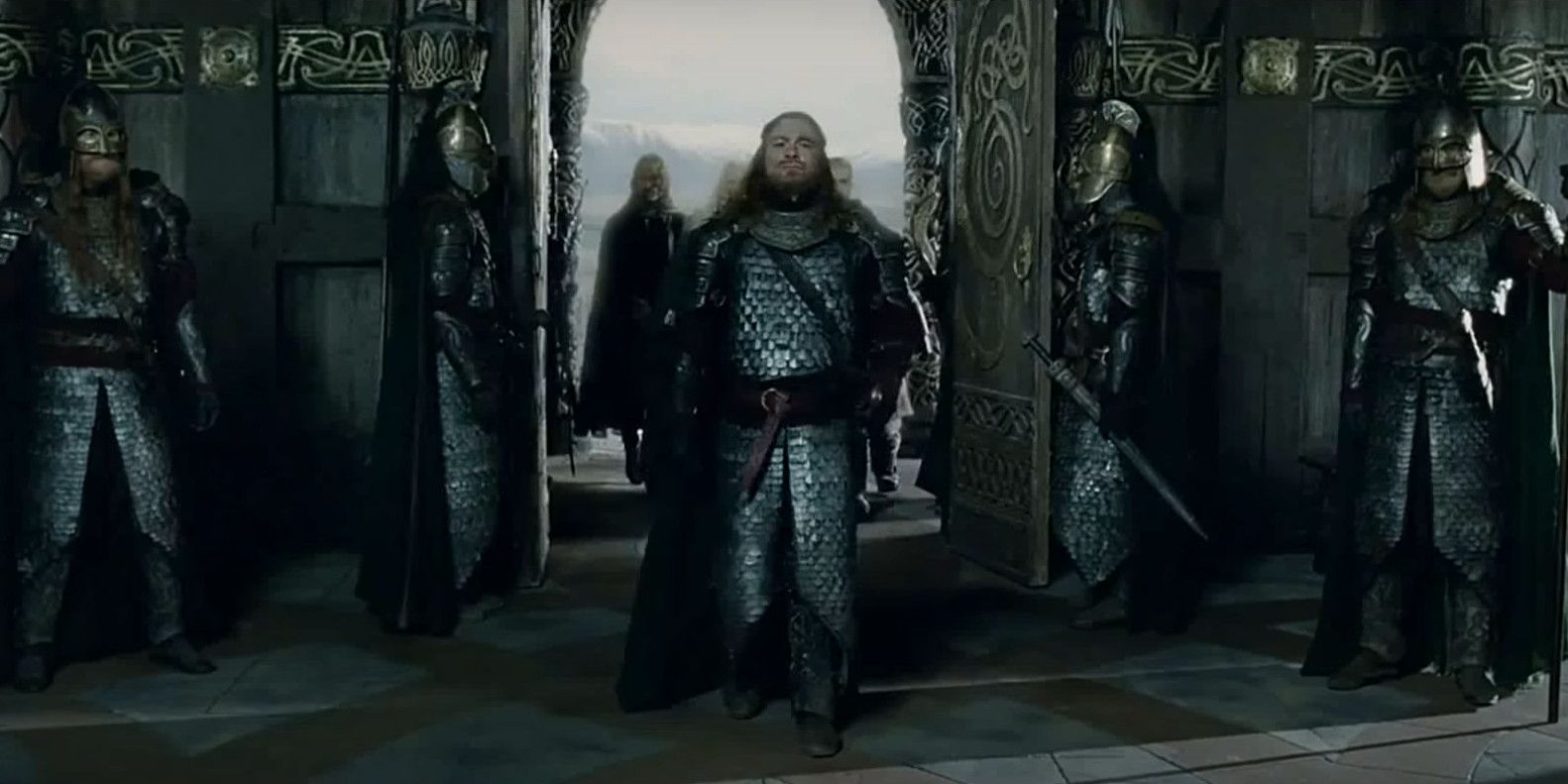
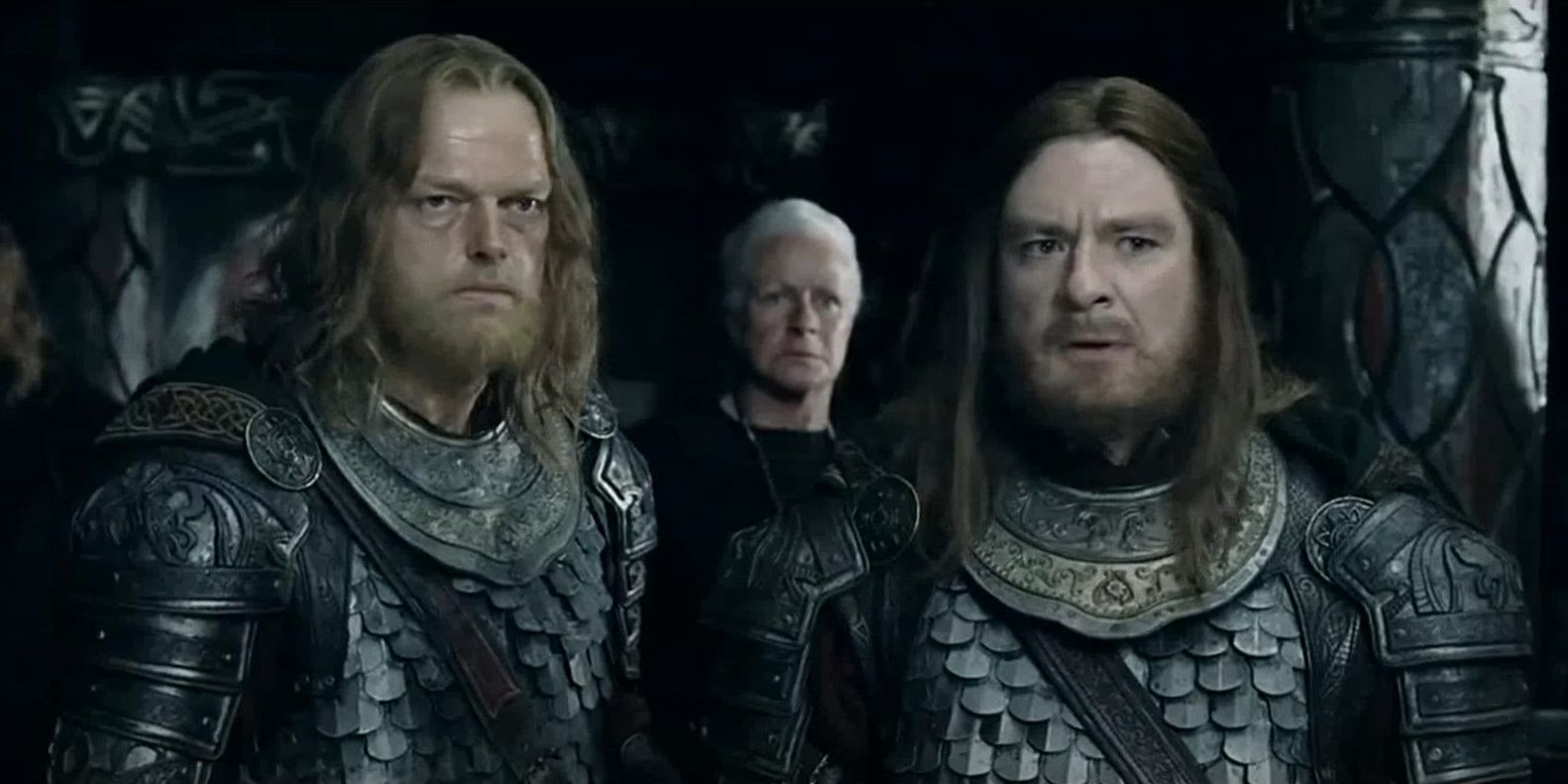




Háma first appeared in the film when Gandalf, Aragorn, Legolas, and Gimli came to Edoras. He guarded the front door of the Golden Hall of Meduseld, where Théoden sat upon his throne. On Wormtongue’s orders, he demanded that the travelers hand over their weapons before meeting with Théoden. Aragorn, Legolas, and Gimli reluctantly parted with their equipment, but Gandalf held on to his staff. When Háma asked him to relinquish it, Gandalf convinced him that he posed no threat: “You would not part an old man from his walking stick.” Háma relented, allowing Gandalf and his friends to enter Meduseld. When Wormtongue saw that Gandalf was armed, he angrily shouted, “I told you to take the Wizard’s staff!”
The fact that Wormtongue had specifically mentioned the staff to Théoden’s guards indicated that Háma was well aware that it was more than a walking stick and purposefully ignored Wormtongue’s orders. Upon Wormtongue’s outburst, the guards stepped in to prevent Gandalf from confronting Théoden, but Aragorn, Legolas, and Gimli fought them to buy Gandalf time. Notably, Háma did not participate in this fight; in fact, he held back one of his fellow guards, Gamling. Thanks to Háma turning a blind eye towards the staff and stopping his allies from helping Wormtongue, Gandalf was able to oust Saruman’s influence from Théoden’s mind. Once the King of Rohan returned to his senses, he cast Wormtongue out of his court and began to lead his people in the fight against Saruman. Háma remained loyal to Théoden for the rest of his life — which was not long.
Saruman’s Monstrous Minions Killed Háma
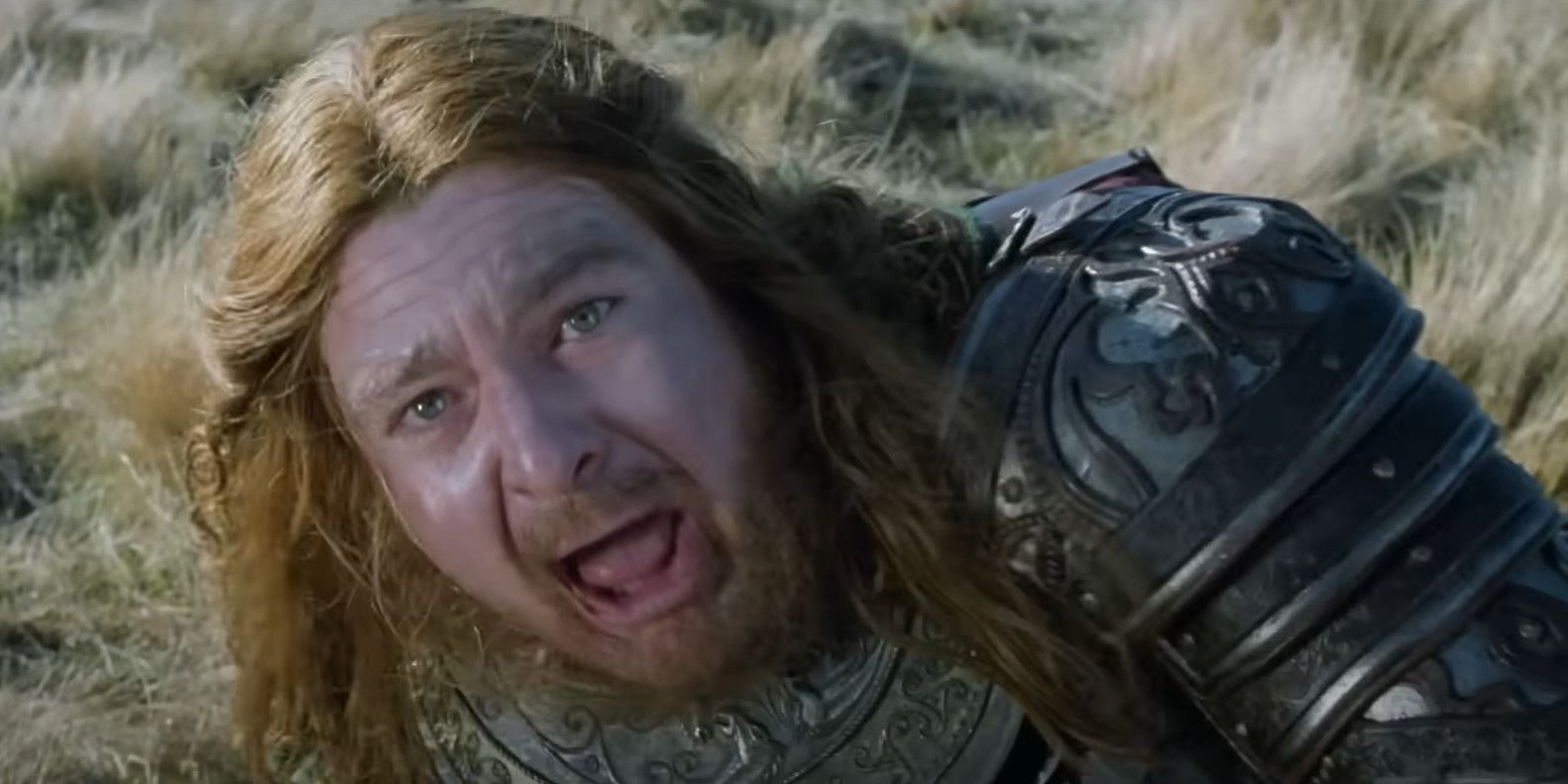
Háma’s name came from the Old English word hām, meaning “home.”
Háma shared his name with one of the sons of Helm Hammerhand, who will appear in the upcoming animated film The Lord of the Rings: The War of the Rohirrim.
Háma joined the other Rohirrim on their journey from Edoras to Helm’s Deep. He and Gamling rode at the front of the group, scouting ahead for any potential threats. As they rode by some cliffs, their horses began to behave anxiously. Gamling asked what was wrong, and Háma replied, “I’m not sure.” These were his final words. Suddenly, a Warg and its Orc rider attacked. The Warg pounced on Háma, knocking him off his horse, and mauled him to death. Legolas shot the Warg with an arrow, narrowly keeping Gamling from meeting the same fate. Though that was the end of Háma, it was not the end of his influence on the film.
Háma’s son, Haleth, fought in the Battle of Helm’s Deep. Under ordinary circumstances, he would have been too young to serve as a soldier, but the Rohirrim were desperate during the Battle of Helm’s Deep. They were vastly outnumbered and needed all the help that they could get, even if it meant putting children at risk. Before the battle, Aragorn spoke with Haleth. The boy felt hopeless about the upcoming battle, and though he did not mention it, his father’s recent death must have played a part in his poor mental state. Aragorn encouraged him, ensuring him that he was well-prepared and telling him that “there is always hope.” The film did not reveal whether Haleth survived the devastating battle, as he did not appear afterward.
Háma Served King Théoden Until the Very End
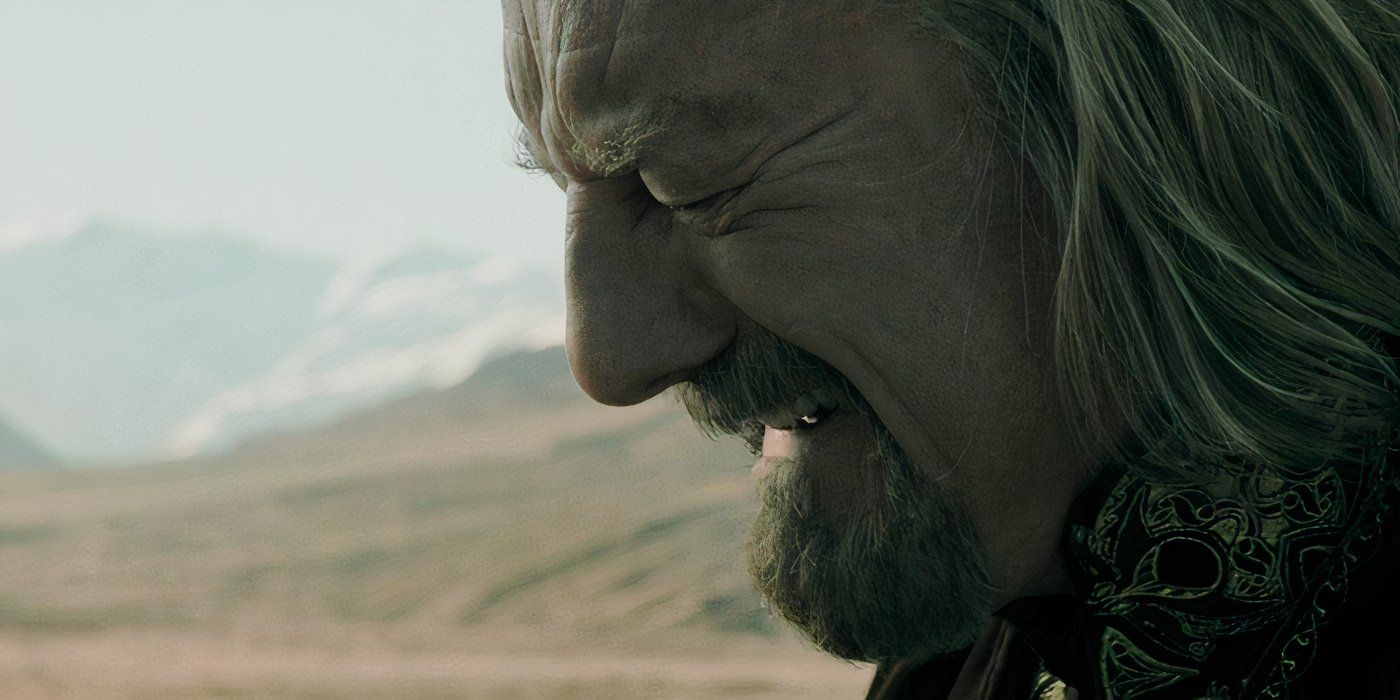
Haleth was portrayed by Calum Gittins, the son of screenwriter Philippa Boyens.
Haleth did not come from the novel, but there were multiple other characters of the same name in Tolkien’s legendarium, including another son of Helm Hammerhand.
Háma appeared in the novel version of The Lord of the Rings as well, filling largely the same role. In the chapter “The King of the Golden Hall” from The Two Towers, he had a conversation with Gandalf that played out similarly to Jackson’s film. He was initially more aggressive than his cinematic counterpart, even drawing his sword and pointing it at the travelers, but once he learned who they were, he became friendlier. The novel made explicit what the film only implied: Háma had purposefully ignored Wormtongue’s orders by letting Gandalf bring his weapon into Meduseld. He told Gandalf, “The staff in the hand of a wizard may be more than a prop for age… Yet in doubt, a man of worth will trust to his own wisdom. I believe you are friends and folk worthy of honour, who have no evil purpose.” He hoped that Gandalf would be able to heal Théoden or at least overthrow Wormtongue. Unlike in the film, a fight did not break out in Meduseld, so there was no opportunity for Háma to hold one of his fellow guards back.
The Warg attack did not occur in the novel version of The Lord of the Rings, so Háma survived the journey to Helm’s Deep, but this did not keep him from meeting a violent end. As suited the Doorward of Théoden, he guarded the front gate of Helm’s Deep. The Uruk-hai cut Háma down and mutilated his body. Théoden was devastated by the loss of one of his most loyal guards, and he helped bury Háma after the battle. Háma’s death weighed on Théoden nearly as heavily as that of Théodred, as evidenced by his conversation with Saruman that took place in the chapter “The Voice of Saruman” from The Two Towers. When Saruman tried to sway Théoden to his side once again, Éomer said to his uncle, “Remember Théodred at the Fords [of Isen], and the grave of Háma in Helm’s Deep!” Angrily, Théoden proclaimed a long list of Saruman’s unforgivable crimes, such as causing the death of Háma:
Even if your war on me was just — as it was not, for were you ten times as wise you would have no right to rule me and mine for your own profit as you desired — even so, what will you say of your torches in Westfold and the children that lie dead there? And they hewed Háma’s body before the gates of the Hornburg, after he was dead. When you hang from a gibbet at your window for the sport of your own crows, I will have peace with you and Orthanc.
Théoden valued Háma’s life nearly as much as that of his son. This proved not only Háma’s importance but also Théoden’s compassion. He did not treat his soldiers as disposable numbers to throw against the enemy; he cared about them as people.




